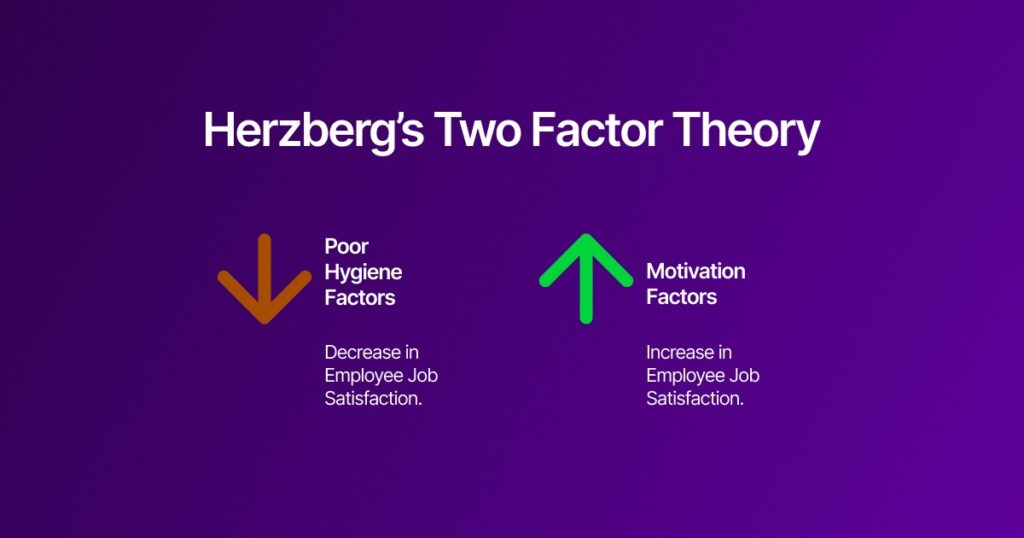Imagine two teams working on the same project. One team is energized, sharing ideas, and celebrating small wins. The other is dragging their feet, barely meeting deadlines, and struggling to stay focused. Which team do you think delivers better results?
In this blog, we’ll discuss why employee motivation is important, how it influences workplace success, and the transformational impact it can have on individuals and organizations alike.
The Impact of Employee Motivation on Organizational Success
Performance and Productivity
Motivation is the engine that powers employee performance. A motivated individual doesn’t just meet expectations, they exceed them. Picture a team fueled by purpose and recognition: they hit targets faster, innovate with enthusiasm, and tackle challenges with determination. Research shows that motivated employees are 125% more likely to stay focused on their tasks, leading to higher-quality outcomes and overall productivity.
Take, for instance, high-performing teams at top companies. Their secret? A culture of motivation, where every effort is acknowledged, and goals are aligned with personal growth. This level of engagement transforms “just doing the job” into delivering excellence.
Retention and Satisfaction
Motivated employees are happier employees, and happy employees stick around. When individuals feel valued and inspired, job satisfaction soars. This not only reduces turnover but also saves companies from the hefty costs of losing and replacing top talent. Studies estimate that the loss of a single skilled employee can cost up to 150% of their annual salary in recruitment and training expenses.
Beyond the financial hit, losing motivated employees drains morale and disrupts team dynamics. Cultivating a motivated workforce is like planting seeds for long-term stability and growth, ensuring your best people stay for the journey.
Workplace Culture
Teams that are inspired to work collaboratively, foster innovation, and create a positive, supportive environment. This energy is infectious, spreading beyond office walls to enhance brand reputation and attract top-tier talent.
Companies known for their engaged employees often find themselves becoming employers of choice. Their culture, rooted in motivation, sends a clear message: this is a place where people thrive, grow, and succeed together.
The Psychological Science Behind Motivation

Theories of Motivation
Motivation isn’t a one-size-fits-all concept—it’s deeply rooted in psychology and driven by different factors. Two key theories shed light on what inspires people to give their best:
This theory divides workplace motivators into two categories: motivators and hygiene factors. Motivators, like recognition and personal growth, directly drive motivation and satisfaction. Hygiene factors, such as salary and working conditions, prevent dissatisfaction but don’t necessarily inspire people to excel. Think of it as building a strong foundation (hygiene factors) before adding the spark (motivators) that ignites true engagement.
According to Maslow, motivation is a step-by-step journey. Employees must first have their basic needs met—like safety and security—before moving on to higher levels of fulfillment, such as self-esteem and self-actualization. When organizations create an environment that supports these needs, employees naturally feel more motivated and aligned with their roles.
The Role of Mental and Emotional Health in Sustaining Motivation
While theories explain the what of motivation, mental and emotional health highlight the how. When individuals are mentally resilient and emotionally balanced, they’re better equipped to stay motivated, even in challenging circumstances. On the other hand, stress, burnout, and unresolved emotional struggles can chip away at even the most determined spirits.
This is where mental coaching comes into play. Drawing from her expertise as a renowned mental coach and one of the best motivational speakers in the USA, Dr. Petra Frese empowers individuals and teams to unlock their potential. Through scientifically-backed techniques, she helps clients develop the mental clarity and emotional strength needed to sustain motivation in the long run.
Transform stress into success with Dr. Petra Frese’s expertise in mental coaching and motivation—Hire her today.
Signs Your Team Lacks Motivation

Recognizing the following signs early can help leaders take proactive steps to address the issue before it impacts the entire organization.
Common Signs of Demotivated Employees
1. Low Engagement
Employees who lack motivation often appear disengaged during meetings, avoid collaboration, and show little enthusiasm for their work. They may stop contributing ideas or participating in discussions, signaling a disconnect from the team’s goals.
2. Increased Absenteeism
Demotivated employees are more likely to take frequent sick days or arrive late to work. This pattern often reflects a deeper dissatisfaction, as they struggle to find purpose or fulfillment in their roles.
3. Decline in Quality of Work
A sudden drop in performance, missed deadlines, or an increase in errors can indicate a lack of motivation. When employees no longer feel inspired, their commitment to excellence wanes, and the organization feels the ripple effects.
Potential Consequences for the Company and Individuals
Ignoring these signs can lead to serious consequences:
- For the Company: Low motivation results in decreased productivity, higher turnover rates, and a negative workplace culture. These issues not only impact the company’s bottom line but also tarnish its reputation, making it harder to attract top talent.
- For Individuals: Demotivated employees often experience heightened stress, frustration, and even burnout. Over time, this can harm their mental and physical health, creating a cycle that’s challenging to break.
For leaders looking to reignite their team’s passion, Dr. Petra Frese, a top motivational speaker in the USA, provides actionable strategies and inspirational guidance tailored to workplace challenges. Learn more about how her talks can energize your team by visiting her speaker page.
Benefits of a Motivated Workforce

Higher Productivity and Profits: Engaged teams experience a 17% increase in productivity and a 21% boost in profitability.
Improved Well-Being: Motivated employees are 87% less likely to resign, indicating higher job satisfaction and reduced turnover.
Positive Workplace Culture: High engagement leads to 41% lower absenteeism, fostering a more reliable and cohesive team environment.
Boost your organization’s morale and engagement with Dr. Petra Frese’s transformational speaking—Contact her now.
In Summary
Employee motivation is the foundation of every successful organization. It drives productivity, enhances well-being, and fosters a thriving workplace culture. Understanding the psychological principles behind motivation, recognizing signs of disengagement, and implementing strategies to inspire your team can transform your workplace into a hub of innovation and growth.
If you’re ready to unlock the full potential of your workforce, look no further than Dr. Petra Frese, one of the best motivational speakers in the USA. Her inspiring talks are tailored to empower leaders and energize teams, creating lasting change. Hire Dr. Petra Frese as your next speaker today!

